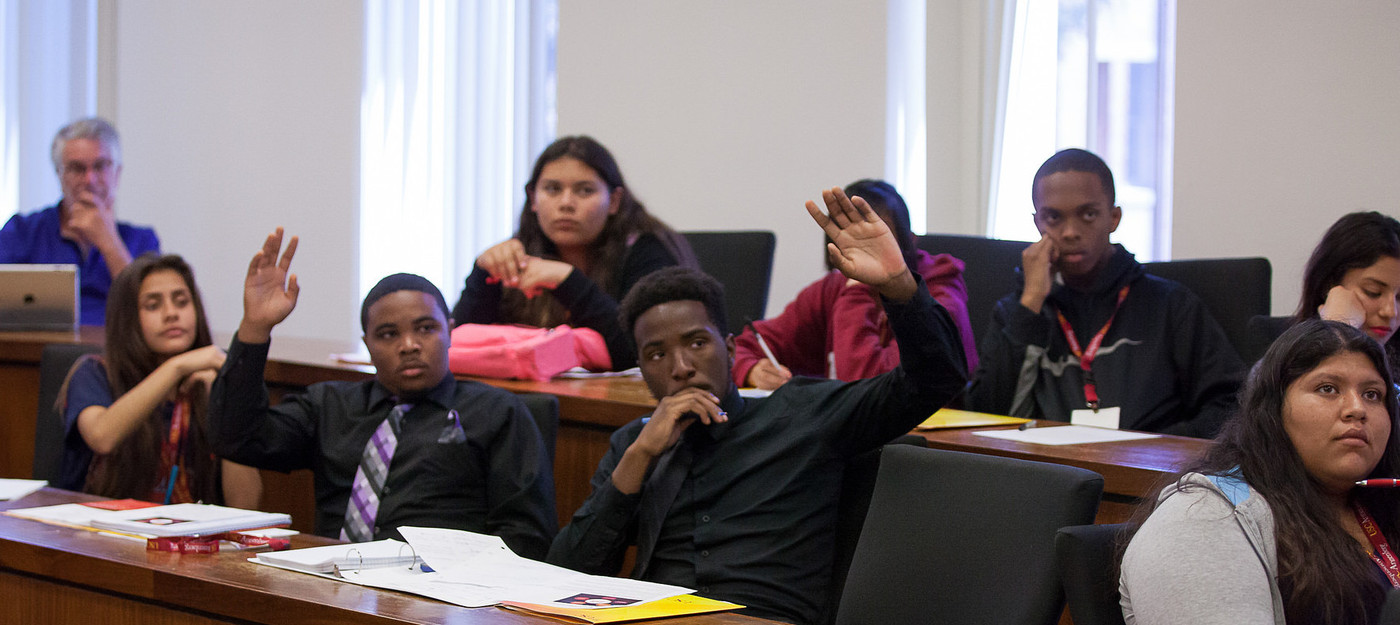
Jul 11, 2016 12:00:00 AM
When researchers compared multiple results on the same measure for the same teachers, the student surveys were more likely than achievement gain measures or observations to demonstrate consistency.These findings shouldn’t be surprising. Observations made by administrators or principals happen less frequently than the continuous evaluations students make of their teachers. Intentionally or not, teachers can perform differently during these periods of observation. Students actually do take the opportunity to provide serious feedback. Moreover, the resulting measures of evaluation are more consistent than other evaluation tools. Well, doubters have said, it’s one thing to have student voice in the classroom. It’s another thing to have student input on decisions beyond the classroom. This is the second myth.
Many researchers have noticed that by not involving students, and particularly those students who are failing subjects or rarely attending school, it is easy for school reformers to shift the blame for failure onto students rather than to look at problems in school culture and leadership that reinforce student failure.Students force adults to confront uncomfortable realities. And I think we can all agree that we need more people who are willing speak truth to power. Furthermore, students have unique, grounded contributions to discourse. This is another one that may seem obvious to those who work with students on a regular basis. But I’ve heard some say that student perspectives are accounted for by adults’ accumulated wisdom. Studies dating back to 1997 have disproven this rationale, concluding that the perspectives of students really can’t be replicated by adults.
Matt Fulle is an intern at Education Post and an undergraduate at Northwestern University's School of Communication studying communication studies and legal studies. He has spent the last 5 years working to advance student voice in education reform. In high school, he helped to start a pilot program for student surveys as a form of teacher evaluation for the Seattle Public School District. In college, he was the external programming coordinator for Northwestern University's chapter of Students for Education Reform.
The story you tell yourself about your own math ability tends to become true. This isn’t some Oprah aphorism about attracting what you want from the universe. Well, I guess it kind of is, but...
If you have a child with disabilities, you’re not alone: According to the latest data, over 7 million American schoolchildren — 14% of all students ages 3-21 — are classified as eligible for special...
The fight for educational equity has never been just about schools. The real North Star for this work is providing opportunities for each child to thrive into adulthood. This means that our advocacy...
Your donations support the voices who challenge decision makers to provide the learning opportunities all children need to thrive.
Ed Post is the flagship website platform of brightbeam, a 501(c3) network of education activists and influencers demanding a better education and a brighter future for every child.
© 2020–2024 brightbeam. All rights reserved.
Leave a Comment